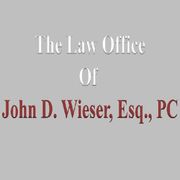How Do Chapter 7 & Chapter 13 Bankruptcies Affect Divorce Settlements?

Chapter 7 and chapter 13 bankruptcies allow you to reorganize your finances, completely discharging some debts and catching up on others through a court-managed repayment plan. But what if some of your obligations are ordered in a divorce decree, or you’re paying off marital debts? If you’re struggling to keep your head above water, understanding how each type of bankruptcy affects your divorce settlement is crucial for making the best choice.
Bankruptcy & Your Divorce Settlement
Support Orders
 Child support, maintenance, and other types of court-ordered payments to your spouse are ineligible for discharge in a chapter 7 bankruptcy. In fact, the automatic stay triggered by a bankruptcy petition doesn’t apply to these types of debts, either, so your ex will still be able to pursue your past due payments. However, a chapter 13 bankruptcy might give you the opportunity to pay back your arrears over time, although your former spouse will usually have to agree.
Child support, maintenance, and other types of court-ordered payments to your spouse are ineligible for discharge in a chapter 7 bankruptcy. In fact, the automatic stay triggered by a bankruptcy petition doesn’t apply to these types of debts, either, so your ex will still be able to pursue your past due payments. However, a chapter 13 bankruptcy might give you the opportunity to pay back your arrears over time, although your former spouse will usually have to agree.
Joint Debts
Most divorce settlements give full responsibility of each marital debts to one of the spouses. However, the family court can’t rewrite the terms of your initial agreement with the creditors, so you’re both still legally liable, which could leave you exposed if your ex files for bankruptcy. For instance, if the court gave responsibility for a joint credit card debt to your ex, the creditor can still come after you if they file for bankruptcy.
Pensions & Retirement Benefits
If you were awarded part of your spouse’s retirement savings or pension plan in the divorce, you might worry that their bankruptcy might impact your future. Fortunately, New York and many other states allow bankrupt debtors to fully exempt pension payments and funds held in a qualified retirement account. Even if your state does allow the trustee to seize a borrower’s retirement funds, they can only take the petitioner’s share. The divorce decree automatically transfers ownership of your portion to you, so they’re not considered part of the petitioner’s bankruptcy estate.
If you’re dealing with a divorce or drowning under unmanageable debt, John D. Wieser Esq., PC, and his staff will provide the dedicated representation and guidance you need. With their background in chapter 7 and chapter 13 bankruptcies, family law, and a variety of other practice areas, they’ve helped clients throughout Rochester, NY, make informed decisions in even the most complex situations. To discuss your case and schedule a consultation, call their offices at (585) 328-0660.
About the Business
Have a question? Ask the experts!
Send your question

